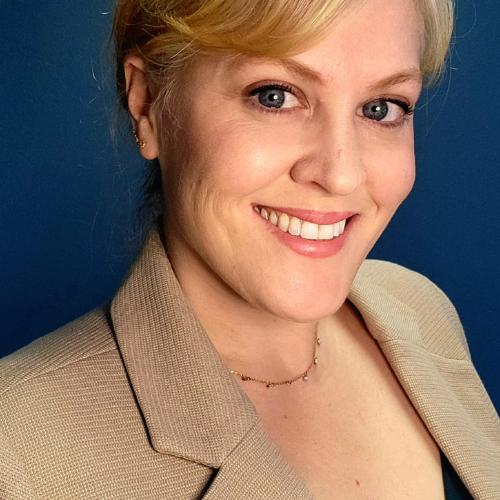
Studies on Innovation, Neurodiversity, and Gaming (SING) Lab
Academic year 2023-2024 will be the first year of the Innovation and Gaming Lab at PAU.
Our lab has two main aims:
- Innovation in the field of mental health from interdisciplinary approaches.
- Risks and resilience factors related to internet gaming.
Innovation
Innovation is the first aim of the lab. The focus is on novel approaches to apply clinical psychology principles to make sustainable changes in psychotherapy and social action. Interdisciplinary knowledge is essential, and students with backgrounds in computer science, start-ups, marketing, business, or other realms outside of clinical psychology are encouraged to apply. Dr. Beard is also the faculty leader for the Fowler Global Social Innovation Challenges and lab members will be encouraged to engage (see the 17 United Nations Sustainable Development Goals for more information).
A few of our ongoing projects include:
- The PAU Positive Period and Plumbing Project (2022 PAU Strategic Initiative Grant)
- Evaluating levels of care in digital mental health startups (e.g., mental health coaching)
- Group therapy using therapeutic role-playing games
- Giftedness assessment – ethical and practical issues
- Community collaborations (e.g., Therapists in Tech, All Tech is Human, Digital Wellness Collective)
Gaming
Gaming Disorder has been recognized by the World Health Organization as a problem (ICD-11) and treatments are becoming well established in countries such as South Korea and the UK. The American Psychiatric Association has recognized Internet Gaming Disorder (IGD) as a condition for further research in the DSM-V-TR. Our goal in the Gaming lab is to help support research in the United States, working with our international colleagues using a risk and resilience model. Check out some of our publications below.
Collaborations
Our lab collaborates with the PAARC and i4Health labs at PAU with respect to applying the addictions framework to gaming and using our knowledge of digital mental health to create innovative treatments.
Methods
A comprehensive understanding of statistical and research methods opens doors to many different fields of research. Working with our PAU community and with international collaborators, or Methods emphasis is for students who are interested in statistical modeling and consultation, systematic review, meta-analysis, and involvement in psychometric studies for US-based and cross-cultural research. Methods is a heart of what we do in our lab. Example publications are included below.

Application Process
A limited number of students in the PAU PhD program will be accepted into the Innovation and Gaming lab in 2023. Students from other programs (e.g., bachelors and masters) at PAU are also welcome to enquire about the lab.
Please send your CV, unofficial transcript, and a cover letter to Dr. Beard at cbeard@paloaltou.edu.
If you’d like more information about the lab before applying, feel free to reach out via email to set up a brief conversation with Dr. Beard.
You can also come by Dr. Beard’s office hours on Fridays at 11:00 am at the Allen Calvin Campus, Office 341. Please notify Dr. Beard if you plan to come by.
Selected Publications
Gaming
Beard, C.L., Haas, A.L., Wickham, R.E., & Stavropoulos, V. (2017). Age of initiation and Internet gaming disorder: The role of self-esteem. Cyberpsychology, Behavior, and Social Networking, 20 (6), 397-401.
Beard, C. L., & Wickham, R. E. (2016). Gaming-contingent self-worth, gaming motivation, and Internet Gaming Disorder. Computers in Human Behavior, 61, 507-515.
King, D. & Gaming Industry Response Consortium (2018). Comment on the global gaming industry’s statement on ICD-11 gaming disorder: A corporate strategy to disregard harm and deflect social responsibility? Addiction. doi:10.111/add.14388
Stavropoulos, V., Beard, C.L., Griffiths, M., Burleigh, T., Gomez, R., & Pontes, H. (2017). Measurement invariance of the Internet gaming disorder scale-short form (IGDS9-SF) between Australia, the United States of America, and the United Kingdom. International Journal of Mental Health and Addiction, 1-16.
PAU Collaborations
Reavis, J., & Beard, C.L. (2018) Behavioral addictions and the emergence of Internet Gaming Disorder. California Psychologist, 51(1), 22-25.
Cummings, C., Beard, C., Habarth, J. M., Weaver, C., & Haas, A. (2019). Is the sum greater than its parts? Variations in substance-related consequences by conjoint alcohol-marijuana use patterns. Journal of psychoactive drugs, 1-9.
Haas, A. L., Beard, C. L., & McKenna, K. (2017). Proportion as a metric of problematic alcohol-energy drink consumption in college students. Journal of Substance Use, 22, 1-7.
Bunge, E., Beard, C.L., Stephens, T., Leykin, Y., & Munoz, R. (2017). Mood management effects of a brief behavioral activation Internet intervention. Journal of Technology in Behavioral Science, 2 (3-4), 163-170
Jones, M., Dickter, B., Beard, C., Perales, R., & Bunge, E. (2016). Meta-analysis on cognitive behavioral treatment and behavioral intervention technologies for anxious youth: More than a BIT effective. Contemporary Behavioral Healthcare, 1, 1-9.
Methods
Gomez, R., Stavropoulos, V., Beard, C. L., & Pontes, H. (2018). Item response theory analysis of the Internet gaming disorder scale- short form (IGDS9-SF). International Journal of Mental Health and Addiction. 1-21
Hu, E., Stavropoulos, V., Anderson, A., Clarke, M., Beard, C., Papapetrou, S., & Gomez, R. (2019). Assessing Online Flow Across Cultures: A Two-Fold Measurement Invariance Study. Frontiers in Psychology, 10, 407.
Soares, E.E., Bausback, K., Beard C.L., Higinbotham, M., Bunge, E.L., & Gengoux, G.W. (in press). Social skills training for autism spectrum disorder: A meta-analysis of in-person and technological interventions.
Suchting, R., Beard, C. L., Schmitz, J. M., Soder, H. E., Yoon, J. H., Hasan, K. M., Narayana, P. A., & Lane, S. D. (2020). A meta-analysis of tract-based spatial statistics studies examining white matter integrity in cocaine use disorder. Addiction Biology, e12902. doi:10.1111/adb.12902.
Beard, C.L., Schmitz, J., Soder, H.E., Suchting, R., Yoon, J.H., Hasan, K.M., Narayana, P.A., Moeller, F.G., Lane, S.D. (2019). Regional differences in white matter integrity in stimulant use disorders: A meta-analysis of diffusion tensor imaging studies. Drug and Alcohol Dependence, 201, 29-37.
Hirst, R., Beard, C.L., Colby, J., Quittner, Z., Mills, B., & Lavender, J. (2017). Anorexia nervosa and bulimia nervosa: A meta-analysis of executive functioning. Neuroscience and Biobehavioral Reviews, 83, 678-690.
